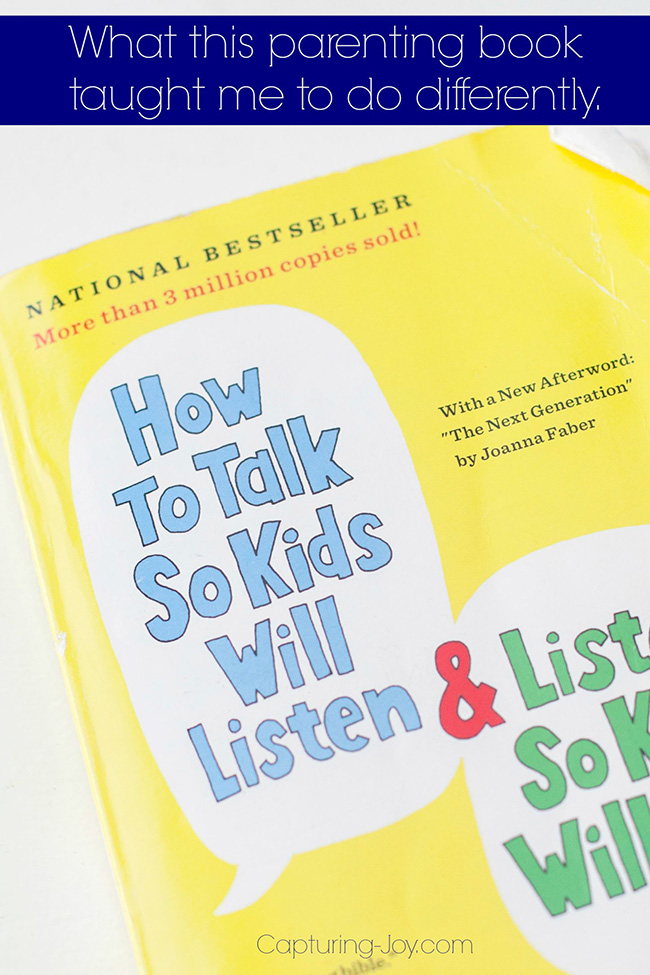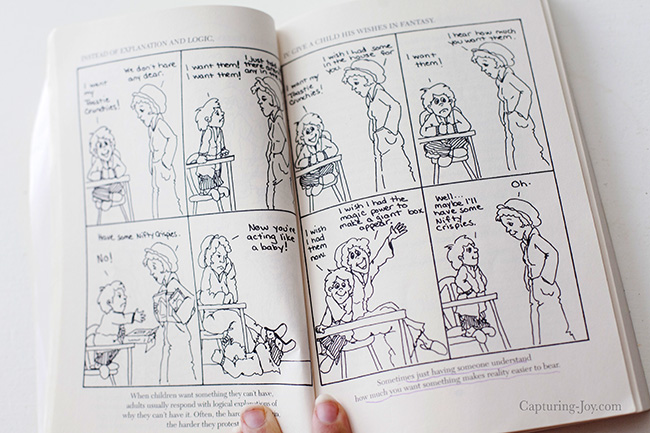If that title doesn’t grab you in, I don’t know what will! I am here to share another one of my favorite books, How to Talk so Kids will Listen, and Listen so Kids will Talk. I first heard about it from Shawni over at 71 Toes, and after 2 years of thumbing through it, and highlighting my favorites, I still love it, and recommend it whenever I get the chance. The title alone, sells itself.

Ever since my kids were babies, I was anxious to have conversations with them. To hear about their day: the good…the bad….the ugly. My oldest is not as chatty as the rest of my kids, (like his dad at the same age) and I have to be creative in getting information out of him. However, I’ve found that the whole “talking” thing is so much more than recounting the events of the day, but HOW I REACT to that chatter that makes all the difference.
I thought I had it all down pretty naturally, but in reading through excerpts of this book (in Chapter 1, alone) I have taken a different approach to how I talk and listen.
I tend to want to solve all the problems of my children. Of course, I’ve got all the right answers (naturally), but this whole talking and listening thing isn’t about what I’ve got to teach them, but what they need to discover for themselves….and the importance of that discovery to self esteem and just basic life skills.
Here are 3 takeaways I got from the book, if you want to learn move, I suggest you check it out! (Amazon affiliate link)
- Don’t tell your kids how they feel about a situation. Let them pull out their own “emotion” words. One example that really stuck with me is when kids go rummaging through the kitchen for food. They just had dinner 30 minutes ago, and they proclaim, “I’m hungry!” Of course you know they can’t possibly be hungry, you know they are likely bored, or looking for a sweet snack, but if you tell them they are NOT hungry, it teaches them to be less confident in their emotions. Instead, divert the attention (like we do for the toddlers) and say, “Are you looking for something sweet?”
- Empathize with your children, even if their emotions are out of whack. First and foremost, we support. Don’t immediately suggest they shouldn’t feel what they feel, validate, then look for the words to help them see the bigger picture, by asking questions to guide to discovery, not telling them what to feel. A quote from the book, “When we acknowledge a child’s feelings, we do him a great service. We put him in touch with his inner reality. And once he’s clear about that reality, he gathers the strength to begin to cope.”
- Just because you have what you think is the right answer, doesn’t mean you need to give it! From the book, “Resist the temptation to “make better” instantly. Instead of giving advice, reflect on your child’s feelings.”
The book has lines for parents to fill out, and helpful role playing activities and comic strips throughout.

I simply can’t recommend this book enough, if you are feeling frustrated on communication, or just if you want some better tools. It’s really changed my way of thinking with how I talk with my kids (and others).

You totally don’t have to, but if you click on this link, and buy from Amazon, I’ll get a small percentage.
Tell me…what is a parenting tip you’ve heard about communication, talking to your kids, or listening that has helped you? Discuss!
See more of my favorite books!





